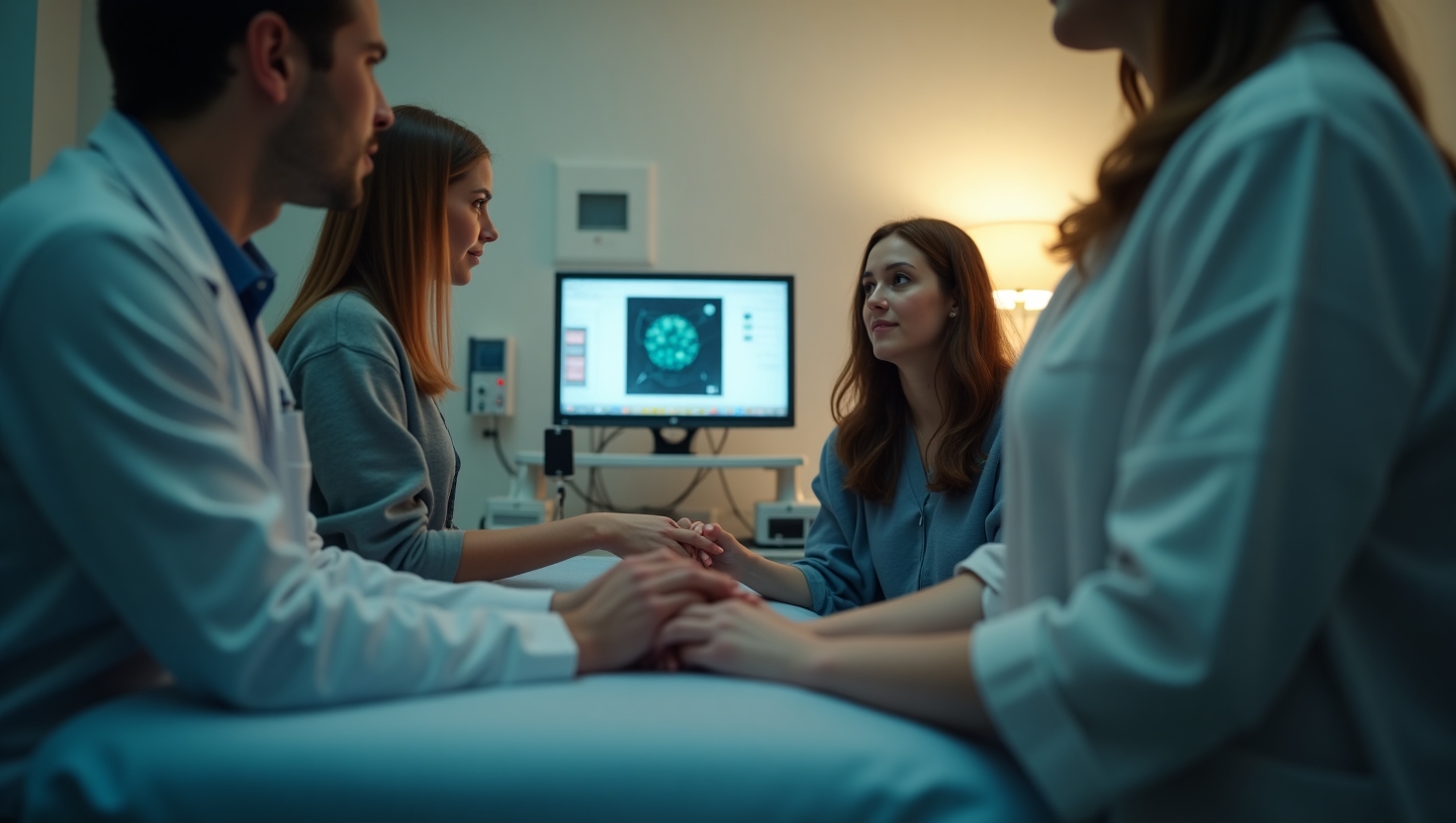AI in Healthcare: Revolutionizing Embryology and IVF Technology
Introduction
In recent years, AI in healthcare has emerged as a revolutionary force, particularly in the realm of reproductive medicine. The integration of AI with embryology and IVF technology is not only enhancing the precision and success rates of treatments but also creating a burgeoning demand for skilled professionals in the field. This evolution marks a profound change in how medical professionals approach challenges in fertilization and embryonic development, shaping the future of healthcare.
Background
Embryologists play a crucial role in assisted reproductive technologies (ART), yet there is a notable shortage of these specialists in the U.S., as highlighted in various studies [^1^]. This scarcity may impact the efficiency and effectiveness of IVF treatments, underlining the urgency for innovative solutions. Enter Fairtility’s CHLOE AI algorithm, a groundbreaking advancement aimed at optimizing embryo selection during IVF. CHLOE evaluates embryo viability by harnessing extensive historical data, refining the IVF process into one that is safer and more reliable [^1^]. This tool signifies a major leap forward, akin to moving from standard photographs to high-definition imaging, offering embryologists a closer and clearer look at embryo health.
Trend
The application of AI predictions in healthcare is rapidly gaining traction, particularly in embryo assessment. AI is becoming indispensable for professionals in embryology, facilitating more accurate embryo selection without necessitating traditional genetic testing. This trend mirrors how piloting an aircraft has evolved from manual controls to sophisticated autopilot systems, where technology enhances human capability. Klaus Wiemer, a leading voice in embryological studies, asserts that with AI, embryologists can focus more on scientific analysis, thereby improving overall outcomes [^1^].
Insight
Experts like Klaus Wiemer emphasize the profound implications of AI within biotechnology and its transformative impact on future careers in healthcare. Wiemer notes that AI tools, such as CHLOE, act as virtual lab assistants, alleviating workloads and offering significant improvements in embryology practices [^1^]. This automation allows professionals to dedicate more time to critical analyses, thus advancing research and development in the sector. For students and professionals eyeing a future in healthcare, expertise in AI and its applications could position them at the forefront of medical innovation.
Forecast
Looking ahead, the influence of AI is expected to grow exponentially over the next decade, reshaping embryologist jobs and propelling IVF technology forwards. AI’s capabilities may lead to the evolution of the biotechnology industry by providing new methodologies that were previously impossible due to human limitations. As technology continues to evolve, we may witness a healthcare landscape where AI-driven insights become standard practice, further improving fertility outcomes and expanding access to these services.
Call to Action
As the field of embryology anticipates these technological advancements, there lies an abundance of opportunities for those interested in shaping the future of healthcare. We encourage individuals to explore embryologist jobs, where innovation is not just welcomed but required. Keep abreast of the fast-moving developments in AI technologies to better understand and contribute to the advancements that are crafting a new era of medical care.
Stay informed and inspired, as the fusion of AI with healthcare holds the potential to define the next chapter in reproductive medicine. For more insight into how AI is transforming embryology and the potential career paths it offers, explore additional resources here.
—
^1^]: [Technology Review
